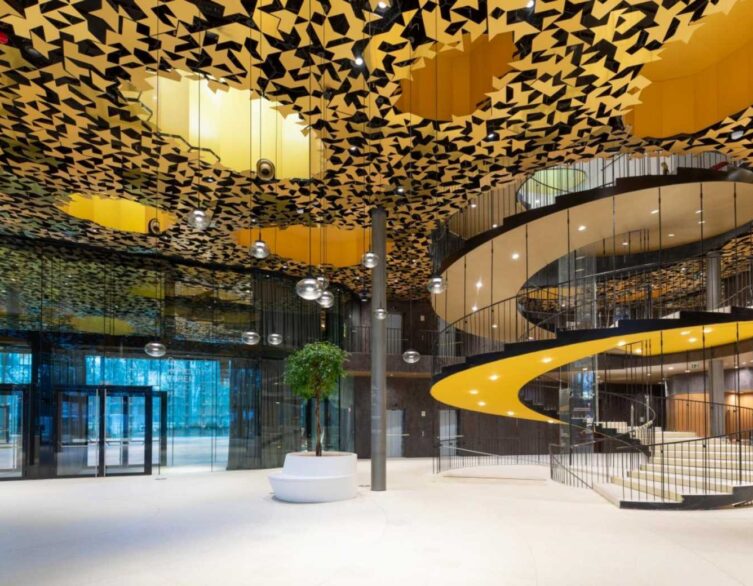Budapest’s Quest to Become Central Europe’s Tech Powerhouse

Budapest stands at a technological crossroads. Recent analysis suggests Hungary’s capital city could emerge as a major Central European technology hub, but several critical challenges must be addressed first. For international visitors interested in the region’s evolving tech landscape, understanding Budapest’s current position and future potential offers fascinating insights into one of Europe’s most dynamic emerging markets.
The Global Competition for Tech Talent
The worldwide demand for artificial intelligence specialists and software engineers continues to surge at unprecedented rates. According to CBRE’s latest “Global Tech Talent 2025” report, cities worldwide are engaged in increasingly fierce competition to attract and retain technological talent. Major tech centers like Bangalore and Austin now employ over half a million tech workers, setting benchmarks for smaller cities aspiring to join their ranks.
Budapest currently operates below this elite tier but possesses several compelling competitive advantages that could accelerate its development into a regional technology powerhouse. The city’s positioning becomes particularly interesting when viewed through the lens of Central European competition and global cost structures.
Budapest’s Hidden Strengths in the Tech Race
The Hungarian capital demonstrates remarkable potential through several key factors that international companies find increasingly attractive. Budapest’s software engineering salaries rank among the most competitive in Europe, creating significant cost advantages while maintaining high skill levels. This economic efficiency stems partly from the strong educational foundation provided by institutions like Budapest University of Technology and Economics (BME) and Eötvös Loránd University (ELTE), which graduate thousands of engineers and computer scientists annually.
Perhaps more importantly for global companies, Hungarian IT professionals demonstrate exceptionally strong English language skills compared to their Central and Eastern European counterparts. This linguistic capability eliminates communication barriers that often complicate international business operations, making Budapest an attractive European base for multinational technology firms seeking skilled yet cost-effective talent pools.
The combination of technical competence, language proficiency, and competitive pricing creates a compelling value proposition for companies expanding their European operations or establishing regional development centers.
Critical Challenges Threatening Growth
Despite these advantages, Budapest faces several obstacles that could derail its technological ambitions. The city’s tech workers spend approximately 30% of their income on housing costs, representing the highest ratio among all 75 cities examined in the CBRE study. This housing burden creates significant financial pressure on professionals who might otherwise find Budapest an attractive place to build their careers.
The rapid increase in housing prices and rental costs over recent years has substantially reduced living standards, potentially driving talent away to more affordable locations or discouraging international professionals from relocating to Budapest. This housing crisis could undermine the city’s competitive advantages if left unaddressed.
Additionally, Hungary’s working-age population declined by 0.7% between 2023 and 2024, according to the report. This demographic trend suggests that Budapest’s tech sector growth may hit natural limits unless the city can attract foreign workers or implement targeted urban development programs to reverse population decline.
Best deals of Budapest
Regional Competition and Positioning
Within Central Europe, Warsaw and Prague currently lead the technology sector race. Warsaw employs over 150,000 IT and tech professionals, while Prague approaches the 100,000 threshold. Budapest operates below this level, placing it in a secondary position within the regional hierarchy.
However, Budapest’s closest competitor appears to be Bucharest, which faces similar challenges regarding housing costs and demographic trends. The Hungarian capital maintains advantages in language skills, infrastructure quality, and higher education standards that could prove decisive in competing with the Romanian capital for regional technology investment.
According to Gábor Borbély, CBRE’s market analysis director for Central and Eastern Europe and Hungary, Budapest shares many advantages with neighboring capitals in the global competition for IT companies, including skilled and relatively affordable labor, strong engineering and IT education, and low office costs by international standards. However, demographic trends remain unfavorable, and living costs have increased dramatically relative to local salaries throughout the Central and Eastern European region.
The Window of Opportunity
Budapest faces critical decisions that will determine whether it becomes a Central European tech power or loses ground to competitors like Warsaw and Lisbon. The city possesses fundamental strengths in education, language capabilities, and cost structures that provide a solid foundation for growth.
However, success requires addressing housing affordability, developing comprehensive strategies to counter demographic decline, and creating policies that attract and retain top technological talent. The timing appears crucial, as global demand for tech services continues expanding while competition between cities intensifies.
Major Tech Events Showcasing Budapest’s Ambitions
The city’s technological aspirations become evident through high-profile events scheduled for the coming months. The AI Summit 2025, taking place September 8-9 at the Hungarian House of Music and Museum of Ethnography, represents one of Central and Eastern Europe’s most significant artificial intelligence conferences. This event will explore fundamental questions about human-machine collaboration and the future of artificial intelligence development.
Following closely, Brain Bar 2025 on September 18-19 promises to be Europe’s largest festival focused on future trends. Themed “The Next 25 Years,” this event will examine geopolitics, climate change, technology, and social relationships, featuring discussions from world-renowned experts and attracting visitors from around the globe.
These events demonstrate Budapest’s commitment to positioning itself as a regional thought leadership center for technology and innovation, potentially attracting international attention and investment to support its broader technological ambitions.
Looking Forward
Budapest stands at a technological inflection point where decisions made in the coming years could determine whether it joins Europe’s top-tier tech cities or remains a secondary player. The foundation exists through strong educational institutions, competitive costs, and linguistic advantages, but addressing housing affordability and demographic challenges becomes essential for realizing the city’s full potential.
For international visitors and potential investors, Budapest represents an interesting case study in how emerging European cities can leverage their strengths while navigating complex urban development challenges in an increasingly competitive global technology market.
Related news
Related events
Related attractions















